| |
Industry & Business Panels
Monday, 10 June 2013, 11:00 – 18:00
P1: Quality of End User Experience (QoE) for Network Services: Are we really measuring the right things?
P2: 3D Multimedia for Entertainment: Key Technologies and the Role of 3D Media on the Perceived Quality of Experience
P3: Future Network Technologies: What is the impact of future network technologies on carrier networks and services?
P4: Wireless Myths, Realities and Futures: From 3G/4G to Optical and Quantum Wireless
Tuesday, 11 June 2013, 09:00 – 18:00
P5: Cloud Computing and Communication
P6: Internet of Things: What are the challenges and how far is the future?
P7: Inter-vehicle Communication: Quo Vadis?
Wednesday, 12 June 2013, 09:00 – 15:30
P8: Horizon 2020: Europe’s Major New Collaborative Research Programme
P9: Collaborative Programs in Green Communications: Successful Cases and Key Remaining Research Challenges
P10: Wireless 100Gb/s and Beyond: A Special Focus Program of the German Scientific Foundation
Monday, 10 June 2013
11:00 – 12:30
P1: Quality of End User Experience (QoE) for Network Services: Are we really measuring the right things?
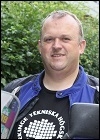 |
Moderator: Markus Fiedler, Blekinge Institute of Technology, Sweden
Bio: Markus Fiedler is full professor in Teletraffic Systems, with a background as electrical engineer specialised in Information and Communication Technology and network performance analysis in particular. His research interests include future networks, Quality of Experience and sustainability issues with focus on the application domains e-Health, Smart Energy and Intelligent Transport Systems. He is leading the Communication and Computer Systems Research Laboratory at the School of Computing, and has been co-chair of the Future Internet Cluster during the last two years.
Slides: PDF
|
During the recent years, Quality of Experience (QoE) has received much attention by suppliers, operators and researchers. While intensive and fundamental discussions on views on, definitions of and measurement principles for QoE are going on, suppliers and operators face the challenge that they need to satisfy their customers. Schisms exist between viewpoints (technology- versus user-oriented), measurement methods (lab versus life) and parameters (standardized versus innovative). This panel, consisting of panelists with different backgrounds and views, will scrutinize current practices with regards to QoE assessment and try to come up with constructive and pragmatic proposals on how to overcome shortcomings of classical QoE assessment methods and parameters, thus tanking important steps towards telling and future-proof measurements.
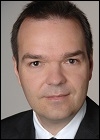 |
Speaker: Robert Muellner, Telefonica, Germany
Bio: Robert Müllner graduated from University of Munich, Germany, in 1994 with a diploma degree in physics, joined Siemens AG Communications Mobile Networks in 1997. From 2000 to 2007 he was working on simulation models and product development for GERAN and UTRAN mobile networks. His research interests are Quality of Service and Quality of Experience, speech codecs, protocols, radio resource management and performance efficiency. From 2007 to 2010 he was with Nokia Siemens Networks focusing on radio resource management algorithms for LTE. Since 2010 Robert Müllner is with Telefónica working on radio design and quality strategies with focus on Quality of Experience.
|
| |
|
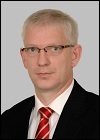 |
Speaker: Matthias Linder, Magyar Telekom, Hungary
Bio: Matthias Linder received his university degree in Electronic Engineering, Telecommunications in Munich and now looks back on 20 years of experience in telecommunications’ infrastructure.His carrier at Deutsche Telekom Group started in 1992 as an Expert and Assistant Head, later Head of Department in the Research and Technology Center. In 2000 he became Vice President and Head of Main Department of System Qualification at the Technology Engineering Center. In this position he was responsible for System Qualification of all active wireline infrastructure systems in Germany. In 2008 he was appointed to be the head of the Shenzhen Branch Office and Vice President Technology in China. In this position he was responsible for setting up the new office and for fixed network technology of Asia Products & Innovation, Procurement and Technology. Since January, 2011 he is the Chief Technical Officer of Magyar Telekom Plc. in Hungary, responsible for plan, build and run of the fixed, mobile and TV networks.
Slides: PDF
|
| |
|
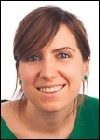
|
Speaker: Katrien de Moor, iMinds/Unversity of Ghent, Belgium
Bio: Katrien De Moor holds a Masters degree in Social Sciences: option Communication Sciences from Ghent University (2005). Since November 2005, she has been working as a researcher at the Research Group for Media & ICT (iMinds-MICT), embedded in the Department of Communication Sciences at Ghent University. She has broad research interests, including user involvement in innovation research, living lab methodologies, innovation foresight and future-oriented technology assessment. Her main research activities are however situated in the domain of user-centered Quality of Experience. She has presented her work at various international conferences and has published in several international, peer-reviewed journals. In December 2012, she defended her Ph.D thesis entitled Are engineers from Mars and users from Venus? Bridging gaps in Quality of Experience research: reflections on and experiences from an interdisciplinary journey. She was granted with a European postdoc fellowship (ERCIM Alain Bensoussan Fellowship Programme) and is currently continuing her research on QoE in different application domains at the Department of Telematics, Norwegian University of Science and Technology. In addition, she is still an active member of iMinds-MICT, Ghent University.
Slides. PDF
|
| |
|
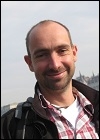 |
Speaker: Tobias Hossfeld, University of Würzburg, Germany
Bio: Tobias Hossfeld studied computer science at the University of Würzburg, Germany. He finished his PhD on performance evaluation of future Internet applications and emerging user behavior in 2009. He is heading now the FIA research group Future Internet Applications & Overlays at the Chair of Communication Networks in Würzburg. He has been visiting senior researcher at FTW in Vienna with a focus on Quality of Experience research. His main research interests cover social networks, crowdsourcing platforms, content distribution networks and clouds, as well as investigations on Quality of Experience for Internet applications like Skype, YouTube, Web Browsing or cloud applications in general. More infos at www.t-hossfeld.de.
Slides. PDF
|
| |
|
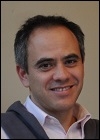 |
Speaker: Sergio Beker, Huawei European Research Centre, Germany
Bio: Sergio Beker obtained his Electrical Engineering degree from Buenos Aires University in Argentina in 1994. He actively participated in the transformation of the local telecommunications market by collaborating in establishing the first Internet gateway and the exchange point in Buenos Aires between 1995 and 1998. He obtained his PhD from the Ecole Nationale Superieure des Telecommunications de Paris (Telecom ParisTech) in 2004 and joined France Telecom R&D (Orange Labs) in Sophia Antipolis to work on application performance optimization, SLA management and Quality of Experience (QoE). He contributed to set up the CELTIC QuEEN (Quality of User Experience in Networks) Project. Between 2008 and 2010, he actively contributed to Orange’s research efforts on SLA and QoE for Business Services, including Cloud Services. In 2011 Sergio Joined Huawei’s European Research Center in Munich, Germany, as Senior Solutions Architect where he leads the Huawei’s innovation on Customer Experience Management and User-Centric Service Modeling for mobile broadband, contributing to several joint innovation projects with mobile operators across Europe. Sergio is currently the Area Leader in Future Carrier Networks within the Huawei Central Research Institute.
Slides. PDF
|
Back to Top
Monday, 10 June 2013
14:00 – 15:30
P2: 3D Multimedia for Entertainment: Key Technologies and the Role of 3D Media on the Perceived Quality of Experience
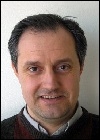 |
Moderator: Atanas Gotchev, Tampere University of Technology, Finland
Bio: Atanas Gotchev received M.Sc. degrees in radio and TV engineering, and applied mathematics, and Ph.D. degree in telecommunications from Technical University of Sofia, Bulgaria in 1990, 1992, and 1996 respectively; and Dr. Tech. degree in information technologies from Tampere University of Technology, Finland in 2003. Currently, he is an Associate Professor (tenure track) and an Academy of Finland Research Fellow with the Department of Signal Processing, Tampere University of Technology and leads the 3D Media Group there. His research interests are in sampling and interpolation theory, and spline and spectral methods with applications to multi-dimensional signal analysis. He was the Scientific Coordinator of the FP7-funded project Mobile3DTV and chaired the Research Exchange Committee of FP6-funded 3DTV NoE. He served as General Chair of the 3DTV Conference 2010 held in Tampere, and as Chair of the conference Image Processing: Algorithms and Systems (2012 a2013) part of the IS&T/SPIE Electronic Imaging Symposium. He is Member of IEEE, EURASIP, and SPIE and former Chair of IEEE CAS & SP Chapter of Finland.
|
During the last years, 3D media has gained momentum due to advances in display technology, signal processing and microelectronics, which allow offering an appealing 3D media experience on consumer electronics platforms. Recent advances in 3D media technologies follow worldwide increasing research activity in multidisciplinary fields, including capturing, representation, coding, delivering/transmitting, and visualizing to 3D displays. Whereas 3D media has been widely adopted in several application scenarios, the entertainment market segment is reporting the most remarkable successes, with 3DTV and 3D gaming at the forefront. Indeed, it is now considered an essential media towards the provisioning of immersive experience to home and mobile users. With particular reference to 3D multimedia for entertainment, this industry panel is aimed at discussing about the key technologies that are being exploited in the latest applications, which are the major obstacles that still need to be addressed, and the role of 3D media on the perceived Quality of Experience.
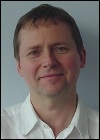 |
Speaker: Andy Quested, BBC, UK
Bio: Andy Quested started working as a Technical Assistant at the BBC in 1978. After going through the BBC’s engineering training Andy joined the Telecine and Video Tape department as a television engineer. From there Andy moved through the different engineering (studios, outside broadcasts film department, central switching) before working as an edit assistant and becoming a video tape editor in 1986. Andy worked as an editor across the whole range of BBC output but is possibly best known as the editor of Keeping Up Appearances! In 2000 Andy gave up the life of a hermit editor and moved into the sunshine and bright lights of the BBC Technology Group. Since 2005, Andy has been leading the BBC’s high definition technology strategy as Head of Technology for HD and leading the work for the BBC’s automated quality control project. He also chairs the EBU strategic Quality Control programme. During 2010 the BBC started a series of transmission and production 3D trials. As part of this Andy has also taken on the role of Head of Technology for the BBC’s 3D output and strategy. Part of his role is to be part of the process of developing standards for 3DTV production and international programme exchange. As part of the process of developing 3DTV standards, Andy was asked to become an ITU Special Rapporteur with the task of examining the current world 3D production status and providing a report with recommendation at the September 2011 and April 2012 ITU meetings in Geneva. Andy also chairs the EBU 3D group. Most recently Andy has taken the challenge of the BBC’s technical strategy on the use of Ultra High Definition (level 1 & 2) for production and programme exchange.
|
| |
|
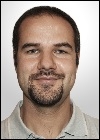 |
Speaker: Peter Kovacs, Holografika, Hungary
Bio: Péter Tamás Kovács received Ms.C. degree in Computer Science from the Budapest University of Technology and Economics. He is the CTO of Holografika, a Hungarian venture active in the field of emerging photonic technologies. The company developed proprietary technologies in 3D visualisation, including the real 3D light-field display device HoloVizio and software applications. The company develops and sells 3D display systems and related software components. Mr. Kovács is responsible for supporting the development team to deliver the envisioned hardware/software platform that satisfies user's needs in every situation. He has experience with management of research and development projects, real-time computer graphics, networking, software optimization, hardware design and embedded devices.
|
| |
|
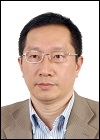 |
Speaker: Qing Zhang, Huawei, China
Bio: Qing Zhang is the deputy director of Media lab at Huawei Technologies, responsible for 3D media technology research and leading a research program ARTIST, which focused to next generation media technology for mobile devices. He joined Huawei in 1996; since then, he has led the product development of video conferencing and video gateway, the multimedia product and technology planning, technology research on audio coding and processing. Before joining Huawei, he was a researcher in China aviation computing technology institute from 1987 to 1996, received his BSc and MSc degree from Peking University and Xi'an Jiaotong University, China in 1987 and 1996, respectively. He has been involved in standardization activities of ITU-T, MPEG and 3GPP; contributed to video telephony, multimedia conference, and audio codec standards. In 2009, he received a national award for science and technology achievement. His research interest includes multimedia communication, collaborative multimedia and 3D media processing. He owns more than 60 patents.
|
| |
|
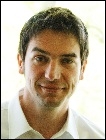 |
Speaker: Aljoscha Smolic, Disney Research, Switzerland
Bio: Aljoša Smolic received the Dr.-Ing. degree from Aachen University of Technology (RWTH), Germany, in 2001. He joined Disney Research Zurich in 2009, where he leads the “Advanced Video Technology” group. Prior to that, he was Scientific Project Manager at Fraunhofer HHI in Berlin. His research areas include video processing, video coding, computer vision and computer graphics, where he published more than 100 referred papers. Since 2003 he had teaching appointments at Technical University of Berlin, Universitat Politècnica de Catalunya (UPC), Universidad Politècnica de Madrid (UPM) and Universitat de les Illes Balears (UIB), and is now Associate Lecturer at ETH Zurich and Adjunct Professor at Karlsruhe University of Arts and Design. Dr. Smolic received the "Rudolf-Urtlel-Award" of the German Society for Technology in TV and Cinema (FKTG) for his dissertation in 2002. He is Area Editor for Signal Processing: Image Communication and served as Guest Editor for the Proceedings of the IEEE, IEEE Transactions on CSVT, IEEE Signal Processing Magazine and other scientific journals. He is TPC member of several conferences and served in several Chair positions. He was pioneering standards for 3D video as group chair and one of the Editors of the Multi-view Video Coding (MVC) standard.
|
| |
|
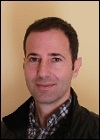 |
Speaker: Luigi Atzori, UNICA, Italy
Bio: Luigi Atzori is researcher at University of Cagliari (Italy) since 2000. His main research topics of interest are in multimedia networking, with particular focus on Quality of Experience, and the Internet of Things. He has published more than 100 journal articles and refereed conference papers. Dr. Atzori has received the Telecom Italia award for an outstanding MSc thesis in Telecommunications and has been awarded a Fulbright Scholarship (11/2003-05/2004) to work on video streaming at the Department of Electrical and Computer Engineering, University of Arizona. He is senior member of IEEE and vice-chair of the IEEE Multimedia Communications Committee (MMTC). He has been the editor for the ACM/Springer Wireless Networks Journal and guest editor for different journals, such as: IEEE Communications Magazine, Monet Journal and Signal Processing: Image Communications.
|
Back to Top
Monday, 10 June 2013
16:00 – 17:30
P3: Future Network Technologies: What is the impact of future network technologies on carrier networks and services?
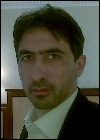 |
Moderator: David Soldani, Huawei European Research Centre, Germany
Bio: David Soldani received a M.Sc. degree with maximum score and cum laude approbatur in electronic engineering from the University of Florence, Italy, in December 1994; and a D.Sc. degree in technology with distinction from Aalto University, Finland, in October 2006. In September 2007, he was qualified for Professorship on Communication Networks from the same university. He has been in the ICT industry for more than 18 years. From 1997 to 2007 he was at Nokia in various technical and research management positions. From 2007 to 2009 he was a research director and head of Customer Networks & Solutions and Solutions & Services Innovation functions, Research Technology & Platforms (RTP), Nokia Siemens Networks (NSN), Munich, Germany. In this role, he was responsible for driving the alignment between the RTP research portfolio, the NSN network architecture vision and technology strategy, and future customer needs, and driving innovative research projects for improving for improving services and fixed-mobile broadband solutions. Prior to joining Nokia, he was a research engineer in Rohde & Schwarz, in Sirti, in Milan, Italy, and a graduated officer at the Italian Military Navy, Livorno, Italy. He is currently Vice President (VP) of the Huawei European Research Centre (ERC) and Head of Central Research Institute (CRI), Munich, Germany. In his current role, he is leading the research to innovation via standardization on Future Network and Terminal Technologies in Europe. Prior to that he was responsible for driving the alignment between Huawei All-IP E2E solutions and future customer needs, taking a holistic view of both service requirements and how these requirements affect the structure, technology, and network components of the optimal solution for each part of an operator’s network. His areas of technical expertise include Future Network Technologies, Wireless and Wireline Broadband Networks, Transport Network Layer Technologies, QoE and QoS, Policy Control and Charging, CEM, Network Planning, Troubleshooting and Optimization. He has been selected seven times to receive special awards in recognition of his role, commitment, professionalism, and outstanding contribution at Nokia, Nokia Siemens Networks and Huawei Technologies. He has published or presented numerous international papers, contributed to the publication of many books, and holds several international patents. He has been working as Guest Editor of IEEE Networks and Communications magazines, and he has taken part in a number of IEEE Technical Program Committees for international conferences, journals, magazines, and workshops, especially in areas of Mobile Broadband Networks and Future Networks.
|
This panel discusses the influence of future network technologies, such as Information Centric Networking, Software Defined Networking, Cloud Networking, Virtualization and Open Connectivity on Future Carrier Networks, i.e. networks that will enable the business of Telco operators in 2020 horizon and beyond. Trust, security and privacy, enforcement of Service Level Agreements (SLA), inter-operability of various virtual cloud systems, Internet of Things (IoT) and spectrum issues are also addressed.
Slides: PDF
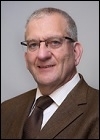 |
Speaker: Luis Rodríguez-Roselló, Head of Unit "Network Technologies" DG CONNECT, European Commission, Belgium
Bio: Luis Rodríguez-Roselló holds a degree of Telecommunications Engineering (Universidad Politécnica de Madrid-UPM). After some years of professional activity as engineer at a private company and as full professor at the Faculty of Telecommunications Engineering at UPM in Computer Science and Control Systems, he was appointed Director of the R&D Department at the ITE (Institute for Technologies in Education) of the Ministry of Education & Science in Spain and later on Head of the International Department of the CDTI (Centro para el Desarrollo Tecnológico e Industrial).
He joined the European Commission in 1989 as Head of Division in Directorate-General "Information Society and Media" responsible for the R&D Programme DELTA (Developing European Learning through Technological Advance). He was acting Director in 2003 and 2004 of Directorate "Emerging Technologies, Infrastructures & Applications". Domains of responsibility encompassed basic research (Future and Emerging Technologies), Grid Technologies, Research Infrastructures and application areas related to eInclusion and eWork. End 2004 he was appointed Head of the Unit "Networked Media Systems" and in 2010 Head of the Unit "Future Networks. In 2009-2010 he was also acting Director of Directorate "Converged Networks & Services", which addressed R&D and innovation on Future Internet (network architectures, communication technologies…), Software & Services, Cloud Computing, Media Systems and Internet of Things among other topics. He also co-chaired during that period the Future Internet Public-Private Partnership initiative of the European Commission. He is currently leading the Unit "Network Technologies", responsible for European R&D and innovation on mobile communications, optical networks, satellite communications, smart networks and future Internet architectures, including Content/ Information Centric Networks and Internet of Things.
Slides: PDF
|
| |
|
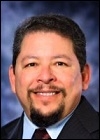 |
Speaker: John Strassner, Huawei Technologies, USA
Bio: Dr. John Strassner has over 35 years of experience. He is currently the Chief Technical Officer of the Software Labs of the Central Software Institute of the US Division of Huawei, where he leads the definition and prototyping of disruptive ICT management technologies that involve SDN, autonomics, applications of AI for managing behavior, the use of information and data models in conjunction with ontologies and various forms of logic, and advances in languages. Previously, he has served as a fully tenured Professor of Computer Science and Engineering; before that, he was a Motorola Fellow and Vice President of Autonomic Research at Motorola Labs. Previously, John was the Chief Strategy Officer for Intelliden, a startup purchased by IBM, and a former Cisco Fellow. John is a Distinguished Fellow of the TeleManagement Forum, and is currently the Chairman of the Autonomic Communications Forum. He is the past chair of the TMF's NGOSS SID, metamodel and policy working groups, along with the past chair of several IETF, IEEE, and WWRF groups. He has authored two books, written chapters for 5 other books, and has been co-editor of 6 journals dedicated to network and service management and autonomics. John is the recipient of the IEEE/IFIP Daniel A. Stokesbury memorial award for excellence in network management, the Albert Einstein for innovation in autonomic networking, and has authored over 300 refereed journal papers and publications.
Slides.
|
| |
|
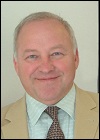 |
Speaker: Hendrik Berndt, NTT DOCOMO Communications Laboratories Europe GmbH, Germany
Bio: Dr.-Ing Hendrik Berndt, Vice President and Chief Science Officer is directing the research at DOCOMO Communication Laboratories Europe since the onset of the company in the Year 2000. His focus is on contributions to strategic directions of research and development for future mobile systems and innovative service platforms. Additional he serves as Vice President of the Wireless World Research Forum for Europe, Africa and Middle-East, and aids as elected Steering Board member the Object Management Group, OMG, and the European Technology Platform Net!Works. Concurrently from 2000 to 2010 he taught as visiting Professor at the GITI, Waseda University in Tokyo, Japan. In the past he held various Director and C-level Manager positions, serving Deutsche Telekom, the International Telecommunication Information Networking Architecture Consortium (TINA-C), in Red Bank, NJ and Global One, Reston, VA, USA. His latest book "Towards 4G Technologies: Services with Initiative", was published by Wiley Series in Communications Networking & Distributed Systems.
Slides. PDF
|
| |
|
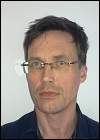 |
Speaker: Kari Aaltonen, NSN, Finland
Bio: Kari Aaltonen is senior research manager at Nokia Siemens Networks. He received an MSc degree in Computer Science from the Department of Computer Science at University of Helsinki in 1988. He joined Nokia Research Center in 1987, where he worked in various research and research management positions until March 2007. From 2001 to 2004 he was Head of Mobile Networks Laboratory in Nokia Research Center. Between 2004 and 2006 he was Competence Area Manager in IP Convergence in Nokia Research Center. He was Head of Nokia Research Platform in 2006-2007 and joined Nokia Siemens Networks in April 2007, when it was established, and since then has worked in the current position as Head of Technology Area, Network Operations and Architectures. His research interest cover network management issues, especially automation, and new network architectures.
Slides. PDF
|
| |
|
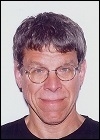 |
Speaker: James Kempf, Ericsson Research, USA
Bio: Dr. James Kempf graduated from University of Arizona with a Ph.D. in Systems Engineering in 1984 and immediately went to work in Silicon Valley. Prior to his current position, Dr. Kempf spent 3 years at HP, 13 years at Sun Microsystems, primarily in research, and 8 years at Docomo Labs USA as a Research Fellow. Dr. Kempf worked for 10 years in IETF, was chair of 3 working groups involved in developing standards for the mobile and wireless Internet, and was a member of the Internet Architecture Board for two years. He is the author of many technical papers and 3 books, the latest of which, "Wireless Internet Security:Architecture and Protocols" was published by Cambridge University Press in 2008. Since 2008, Dr. Kempf has worked at Ericsson Research in Silicon Valley on Software Defined Networking(SDN)/OpenFlow and cloud computing.
Slides. PDF
|
| |
|
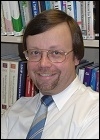 |
Speaker: Heinrich J. Stuettgen, NEC, Germany
Bio: Heinrich Stüttgen was a Fulbright scholar at the State University of New York at Buffalo (NY) from where he holds a Master of Science degree (1979). He obtained a Doctor of Science (1985) degree in computer science from the University of Dortmund. In 1985 he joined the IBM Research and Development Laboratory in Germany, developing one of the first mainframe UNIX systems. In 1987 he moved to IBM’s European Networking Center at Heidelberg, where he researched protocols for high-speed networks and multimedia communications. In July 1997 Heinrich joined NEC Europe Ltd. as founding manager of NEC’s Network Laboratories in Heidelberg. Since June 2007 he is Vice President of NEC Laboratories Europe, responsible for NEC’s ICT related R&D activities in Europe. Heinrich has widely published in various scientific conferences, journals and books. He was a guest lecturer at Mannheim University in Computer Networks and has been project auditor and proposal evaluator for the European Commission in the ICT area. His current technical interest focuses on Software Defined Networking and the Internet of Things. Heinrich is an IEEE Fellow and serves as Director of Conference Development on the Board of Governors of the IEEE Communications Society. From 1998 to 2009 he served as vice-chair of the German Information Technology Society’s special interest group on communications and distributed systems.
Slides. PDF
|
Back to Top
Monday, 10 June 2013
18:30 – 20:00
P4: Wireless Myths, Realities and Futures: From 3G/4G to Optical and Quantum Wireless
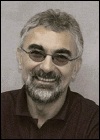 |
Moderator: Lajos Hanzo, University of Southampton, UK
Bio: Lajos Hanzo ( http://www-mobile.ecs.soton.ac.uk) FREng, FIEEE, FIET, Fellow of EURASIP, DSc received his degree in electronics in 1976 and his doctorate in 1983. In 2009 he was awarded the honorary doctorate ``Doctor Honaris Causa'' by the Technical University of Budapest. During his 35-year career in telecommunications he has held various research and academic posts in Hungary, Germany and the UK. Since 1986 he has been with the School of Electronics and Computer Science, University of Southampton, UK, where he holds the chair in telecommunications. He has successfully supervised in excess of 70 PhD students, co-authored 20 John Wiley/IEEE Press books on mobile radio communications totalling in excess of 10 000 pages, published 1300+ research entries at IEEE Xplore, acted both as TPC and General Chair of IEEE conferences, presented keynote lectures and has been awarded a number of distinctions. Currently he is directing an academic research team, working on a range of research projects in the field of wireless multimedia communications sponsored by industry, the Engineering and Physical Sciences Research Council (EPSRC) UK, the European IST Programme and the Mobile Virtual Centre of Excellence (VCE), UK. He is an enthusiastic supporter of industrial and academic liaison and he offers a range of industrial courses. He is also a Governor of the IEEE VTS. During 2008-2012 he was the Editor-in-Chief of the IEEE Press and a also Chaired Professor also at Tsinghua University, Beijing. For further information on research in progress and associated publications please refer to http://www-mobile.ecs.soton.ac.uk
|
The Myth: Sixty years of research following Shannon's pioneering paper has led to telecommunications solutions operating arbitrarily close to the channel capacity - 'flawless tele-presence' with "zero error" is available to anyone, anywhere, anytime across the globe.
The Reality: Once we leave home or the office, even top of the range iPhones and tablet-computers fail to maintain 'flawless tele-presence' quality. They also fail to approach the theoretical performance predictions.
The 1000-fold throughput increase of the best third-generation (3G) phones over second-generation (2G) GSM phones and the 1000-fold increased tele-traffic predictions of the next decade require substantial further bandwidth expansion towards ever increasing carrier frequencies, expanding beyond the radio frequency (RF) band to optical frequencies, where substantial bandwidths are available.
The Future: However, at the time of writing optical- and quantum-domain wireless communications is less well developed than RF wireless. It is also widely recognized that the pathloss of RF wireless systems monotonically increases with the carrier frequency and this additional challenge has to be tackled by appropriate counter-measures in future research. Hence we set out to seek promising techniques of tackling the above-mentioned challenges and for resolving the conflicting design constraints imposed on the flawless tele-presence systems of the future.
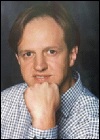 |
Speaker: Harald Haas, University of Edinburgh, UK
Bio: Harald Haas holds the Chair of Mobile Communications in the Institute for Digital Communications (IDCOM) at the University of Edinburgh and he currently is the CTO of a university spin-out company VLC Ltd. His main research interests in interference coordination in wireless networks, spatial modulation and optical wireless communication. Prof Haas holds more than 15 patents. He has published more than 50 journal papers including a Science Article and more than 150 peer-reviewed conference papers. Nine of his papers are invited papers. Prof Haas has co-authored a book entitled "Next Generation Mobile Access Technologies: Implementing TDD" with Cambridge University Press. Since 2007 Prof. Haas has been a Regular High Level Visiting Scientist supported by the Chinese "111 program" at Beijing University of Posts and Telecommunications (BUPT). He was an invited speaker at the TED Global conference 2011, and his work on optical wireless communication was listed among the 50 best inventions in 2011 in the Time Magazine.
|
| |
|
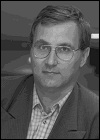 |
Speaker: Sandor Imre, Budapest University of Technology and Economics, Hungary
Bio: Sandor Imre was born in Budapest in 1969. He received the M.Sc. degree in Electrical Engineering from the Budapest University of Technology (BME) in 1993. Next he started his PhD studies at BME and obtained dr. univ. degree in probability theory and mathematical statistics in 1996, Ph.D. degree in telecommunications in 1999 and DSc degree from the Hungarian Academy of Sciences in 2007. Currently he is Head of Telecommunications Dept. at BME. He is also chairman of the Telecommunication Scientific Committee of the Hungarian Academy of Sciences. He is on the Editorial Board of two journals: Infocommunications Journal and Hungarian Telecommunications. Since 2005 he has been the R\&D Director of the Mobile Innovation Centre. His research interests include mobile and wireless systems, quantum computing and communications. He has made wide-ranging contributions to different wireless access technologies, mobility protocols, security and privacy, reconfigurable systems, quantum computing based algorithms and protocols.
|
| |
|
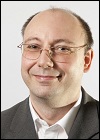 |
Speaker: Markus Rupp, Vienna University of Technology, Austria
Bio: Markus Rupp (SM'06) received the Dipl.-Ing. degree from the University of Saarbr\"ucken, Saarbr\"ucken, Germany, in 1988 and the Dr.Ing. degree from Technische Universit\"at Darmstadt, Darmstadt, Germany, in 1993, where he worked with E.~H\"ansler on designing new algorithms for acoustical and electrical echo compensation. From November 1993 to July 1995, he held, with S.~Mitra, a postdoctoral position with the University of California, Santa Barbara, where he worked with A.~H.~Sayed on a robustness description of adaptive filters with impact on neural networks and active noise control. From October 1995 to August 2001, he was a Member of Technical Staff with the Wireless Technology Research Department, Bell Laboratories, Crawford Hill, NJ, where he worked on various topics related to adaptive equalization and rapid implementation for IS-136, 802.11, and the Universal Mobile Telecommunications System. Since October 2001, he has been a Full Professor of digital signal processing in mobile communications with the Vienna University of Technology, where he founded the Christian Doppler Laboratory for Design Methodology of Signal Processing Algorithms, at the Institute of Communications and Radio-Frequency Engineering, in 2002. He served as Dean from 2005 to 2007. He is currently an Associate Editor for the JASP EURASIP Journal of Advances in Signal Processing and the JES EURASIP Journal on Embedded Systems. He is the author or a coauthor of more than 350 papers and is the holder of 15 patents on adaptive filtering, wireless communications, and rapid prototyping, as well as automatic design methods.
Dr. Rupp was an Associate Editor for the IEEE Transactions on Signal Processing from 2002 to 2005. He has been an Administrative Committee Member of EURASIP since 2004 and served as the President of EURASIP from 2009 to 2010.
|
Back to Top
Tuesday, 11 June 2013
9:00 – 10:30
P5: Cloud Computing and Communication
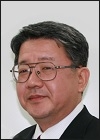 |
Moderator: Y. Mochizuki, VP, Central Research Laboratories (Head of Cloud Research), NEC Corporation
Bio: Dr. Yasunori Mochizuki is Vice President of Central Research Laboratories (CRL), NEC Corporation since June, 2011 and is responsible for the management and/or coordination of cloud–related research activities covering computing architecture, networking, applications and services. Before being appointed as VP, he was General Manager of Information and Media Processing Laboratories in CRL from 2010, where he led the research groups on video object recognition, audio/video signal processing, speech recognition, natural language processing, data mining, and security technologies. Since April, 2013, he is also a General Manager of Corporate Technology which is responsible for corporate-wide strategy on technologies for NEC. Yasunori Mochizuki received his BS, MS, and PhD degrees in Electronic Engineering from the University of Tokyo in 1982, 1984 and 1987, respectively. In 1987, he joined NEC Corporation (Fundamental Research Laboratories) as a research staff on semiconductor solid state physics. He was also a Visiting Associate Professor of University of Tsukuba (Physics Department) from 1997 to 2001. From 2000 through 2009, he was a manager in the research department for Silicon LSI technologies, for which he was appointed to be General Manager in 2007. Dr. Mochizuki is a fellow of Japan Society of Applied Physics.
|
As the application of cloud computing is becoming broader, cloud services become covering not only IT-oriented applications but also those dealing with cyber-physical systems by accommodating M2M capabilities. While the rapid expansion of applications is creating new business models, the technology demand supporting cloud computing is starting to see more and more network communication aspects. Therefore, this panel will feature panelists from industries discussing business models and giving a perspective on future cloud computing.
Slides. PDF
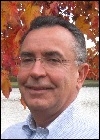 |
Francisco Medeiros, Deputy Head of Unit, European Commission, DG Connect, Brussels
Bio: Francisco Medeiros has an Engineering Degree (Electronics), an MSc Degree (Telecommunications) and a PhD in Electrical Engineering (millimetre-wave systems and devices). He was awarded the “Barlow Prize” by University College London for the most original contribution to research in the Department of Electronic and Electrical Engineering during the academic session 1982/1983. He was a Fulbright Scholar in 1983 and an ITU Fellow in 1984 with the United States Telecommunications Training Institute (Washington DC). He joined the Radio Frequency Technology Division of ERA Technology Ltd in 1986, an independent research organisation based in Leatherhead (UK), where he worked on the design and development of high performance reflector antennas and microwave & millimetre-wave components and systems. He was recruited by NEC Europe (London) in 1990 and became the General Manager of its Telecommunications Technologies Division in 1996. Francisco Medeiros joined the European Commission (Information Society and Media Directorate-General) in 2000, where he worked on radio spectrum policy, focusing on 3G mobile communications. In 2003, he moved to the R&D side of the Commission services, initially in the area of mobile and satellite communications, and then networked media systems. He became Deputy Head of Unit, Networked Media Systems in January 2012. When DG INFSO became DG CONNECT (Communications Networks, Content and Technology) in July 2012, he was appointed as Deputy Head of Unit, Software and Services, Cloud Computing.
Slides. PDF
|
| |
|
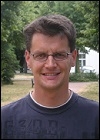 |
Speaker: Wolfgang Theilmann, Head of Enterprise Platform Research, SAP, Germany
Bio: Wolfgang Theilmann heads the platform engineering research at SAP. Particular topics of interest are cloud computing, software-defined networking, platform as a service, SLAs, and performance engineering. Wolfgang participated and led various national and international research projects in the areas of Cloud, Grids and Knowledge Management. Wolfgang led the European Integrated Project SLA@SOI which developed a systematic approach for managing service level agreements in service-oriented infrastructures. Previously, he worked as main editor behind the research roadmap of the NESSI-Grid support action. After joining SAP in 2000 he participated in various research and technology transfer projects leading to major innovations within SAP, such as innovations for SAP HANA Cloud or the development of the SAP Learning Solution. Wolfgang received his doctoral degree in Computer Science from the University of Stuttgart where he worked on the topic of Internet information retrieval. Before, he studied computer science at the University of Karlsruhe with specializations in cognitive systems.
Slides. PDF
|
| |
|
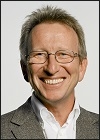 |
Speaker: Matthias Kaiserswerth, Director, IBM Zurich Research Laboratory, Switzerland
Bio: In June 2006 Matthias Kaiserswerth has been named director of IBM Research – Zurich. In addition, he holds a position in the Software Research Strategy Board, in which he coordinates research work in this area across IBM's twelve global research laboratories. From 2002 until the end of 2005 he was the Managing Director of an IBM Integrated Account. In 2000 Matthias Kaiserswerth became the director of IBM's laboratory in Zurich. Additional responsibilities were for the IBM Zurich Industry Solutions Lab where IBM hosts customers to meet with its researchers to discuss future technology and emerging business trends. From 1997 through 1999, Dr. Kaiserswerth was on assignment at the IBM TJ Watson Research Center where he led the networking software and security research. In addition, he was responsible for setting IBM Research's global security research strategy and starting IBM efforts in the emerging field of privacy technology research. From 1988 through 1997 he worked as a Research Staff Member at IBM Research – Zurich on various research projects ranging from high-performance communication systems to message brokering in a medical environment. Most recently, he worked on smart cards and Java security, which lead to the OpenCard industry standard for using smart cards in a Java environment and Visa's Java Cardtm Price Breakthrough program based on the IBM Research – Zurich JCOP platform.
Dr. Kaiserswerth received his MSc and PhD in Computer Science from McGill University in Montreal, Canada and from Friedrich-Alexander University in Erlangen-Nuremberg, Germany respectively. Since May 2012 Dr. Kaiserswerth has been President of the Economic Development Agency Zimmerberg-Sihltal. He is also on the founding Board of Trustees at TECHNOPARK ® Zurich and HASLERSTIFTUNG Bern.
Slides: PDF
|
| |
|
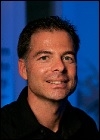 |
Speaker: Götz Brasche, Microsoft Research, Advanced Technology Labs
Bio: Dr. Götz Philip Brasche, Head of Cloud Computing Initiative EMEA, is a senior research manager at the Advanced Technology Labs Europe formerly known as the European Microsoft Innovation Center which he co-founded back in 2003. In his current role, he is responsible for ATLE’s R&D activities within the scope of Microsoft’s Cloud Computing for Science initiative. Dr. Brasche’s areas of expertise are cloud computing and mobile and embedded systems. He. holds a master’s degree in Computer Science with a minor in Business Administration and a Ph.D. in Electrical Engineering.
Slides: PDF
|
Back to Top
Tuesday, 11 June 2013
14:00 – 15:30
P6: Internet of Things: What are the challenges and how far is the future?
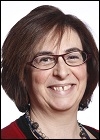 |
Moderator: Barbara Pareglio, Netherlands
Bio: Barbara Pareglio studied electronic engineering at the polytechnic of Turin in Italy, but with a particular interest in telecommunication. She joined Ericsson in 1998 in the Netherlands, where she worked in the area of Intelligent Networks, NGIN (Next Generation Intelligent Networks), SDP (Service Delivery Platform). She contributed to the definition of several standards: the supplementary services for IMS network in ETSI TISPAN, Parlay-X APIs in 3GPP and OMA, Network APIs for the GSMA OneAPI project. For more than three years she has been involved in M2M and Internet of Things area, for which she became the overall coordinator within Ericsson for the M2M Service Enabling standardization. With the main focus on the service enabling, she contributed to several committees in the M2M areas, such as ETSI TC M2M, TIA and oneM2M.
|
The concept of "Internet of Things" (IoT) has been around for almost a decade, but only during the past few years has become more prominent. IoT envisage a world where the world of smart-objects and the real objects "things" (including humans) participate actively in a business process. Smart objects and things can communicate with each other and they are capable to react in an autonomous way to events from the real world and humans. The panel will address some of the challenges in creating such a complex system.
Slides: PDF
 |
Speaker: Alexander Gluhak, CCSR at the University of Surrey, UK
Bio: Dr. Alexander Gluhak is a senior research fellow at the Centre for Communication Systems Research (CCSR) at the University of Surrey, UK, where he is coordinating experimental Internet of Things related research activities. He completed a Dipl.-Ing.(FH) degree from the University of Applied Sciences in Offenburg, Germany in 2002 and a PhD degree at the University of Surrey in 2006. Since then he has held research positions with CSSR and later the Ericsson Ireland Research Centre. He was a visiting researcher at the National Institute for Information and Communications Technology (NICT) in Yokosuka, Japan in 2005 and at the Centre for Embedded Computer Systems (CECS), University of California Irvine, USA in 2002. Alex has led architectural work in several large European research projects, such as e-SENSE and SmartSantander and was technical manager of the FP7 ICT SENSEI project. Apart from his current involvement He is co-investigator on the UK REDUCE project and provides community support on IoT interoperability as part of the PROBE-IT project. Through the years he also contributed to the creation of several EU flagship research projects on Internet of Things, such as IoT-A, i-CORE and FI-PPP OUSTMART and community efforts such as IoT-i.
His current research interests are experimental IoT infrastructures and corresponding support tools, the application of machine learning techniques to resource constrained IoT devices and techniques for a machine understanding of human behaviour. He also explores how these techniques can be applied to areas such as SmartCity and SmartEnergy. Alex currently serves as an EU expert on the EU/China IoT Advisory Group and EU/Taiwan IoT expert group and is a member of the Future Internet Research and Experimentation (FIRE) architecture board. He is a co-organiser of the SenZations summer school, an annual European school on WSN/IoT initiated in 2006, where he regularly provides lectures and tutorials.
Slides. PDF
|
| |
|
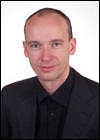 |
Speaker: Falko Dressler, University of Innsbruck, Austria
Bio: Falko Dressler is a Full Professor for Computer Science and head of the Computer and Communication Systems Group at the Institute of Computer Science, University of Innsbruck. He is an Editor for journals such as Elsevier Ad Hoc Networks, ACM/Springer Wireless Networks (WINET), and Elsevier Nano Communication Networks. He was Guest Editor of special issues on self-organization, autonomic networking, and bio-inspired communication for IEEE Journal on Selected Areas in Communications (JSAC), Elsevier Ad Hoc Networks, and others. Dr. Dressler is an IEEE Distinguished Lecturer in the fields of inter-vehicular communication, self-organization, and bio-inspired and nano-networking. He is a Senior Member of the IEEE as well as a Senior Member of ACM. He is actively participating in the IETF standardization. His research activities are focused on adaptive wireless networking and self-organization methods with applications in wireless ad hoc and sensor networks, inter-vehicular communication, bio-inspired and nano-networking, and network security.
Slides: PDF
|
| |
|
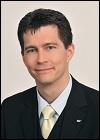 |
Speaker: Uwe Kubach, SAP AG, Germany
Bio: Prof. Kubach is a Vice President at SAP Next Business and Technology and heads the Advanced Development Program “Trillion Node Networks”. The program is driving SAP’s global research and development activities in the areas of Machine-to-Machine (M2M) communication and Internet-of-Things (IoT) technology. Prof. Kubach is a strong supporter of the Open Innovation and Design Thinking paradigms. He established two Living Labs dedicated to user centered research on applications in manufacturing and retail. In addition, Prof. Kubach launched the SAP Research Center in Dresden, Germany and grew it to one of the largest research centers within SAP.
He regularly acts as an industrial consultant to organizations like the European Commission, Fraunhofer Gesellschaft and acatech (Deutsche Akademie der Technikwissenschaften). He earned a doctorate title in computer science from the university of Stuttgart and an MBA from the Mannheim Business School and ESSEC Paris. He has been granted a honorary professor from the University of Dresden.
Slides. PDF |
| |
|
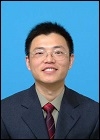 |
Speaker: Bin Zhen, Huawei, China
Bio: Dr. Bin Zhen is a principal engineer at the 2012 Laboratory of Huawei Technologies Co. Ltd.. He focuses on the next generation of short range communications and machine-to-machine communications. He joined Huawei in 2010. He was with National Institute of Information and Communication Technology, Japan, as an expert researcher from 2005 to 2010, where he deeply involved into the standardization of Ultra WideBand (UWB) technologies and Wireless Body Area Networks in the IEEE 802.15. Before that, he has been with the Nippon Telegraph and Telephone (NTT) Network Innovation Laboratories, Japan, and i-Networking Lab of Samsung Advanced Institute of Technology in Korea, respectively. He earned his Ph.D. in biomedical engineering from Xi'anJiaotong University, Xi'an, China in 1997. He owns more than 40 patents and publishes more than 40 journal and conference papers.
Slides. PDF
|
| |
|
| |
|
Back to Top
Tuesday, 11 June 2013
16:00 – 17:30
P7: Inter-vehicle Communication: Quo Vadis?
 |
Moderator: Falko Dressler, University of Innsbruck, Austria
Bio: Falko Dressler is a Full Professor for Computer Science and head of the Computer and Communication Systems Group at the Institute of Computer Science, University of Innsbruck. He is an Editor for journals such as Elsevier Ad Hoc Networks, ACM/Springer Wireless Networks (WINET), and Elsevier Nano Communication Networks. He was Guest Editor of special issues on self-organization, autonomic networking, and bio-inspired communication for IEEE Journal on Selected Areas in Communications (JSAC), Elsevier Ad Hoc Networks, and others. Dr. Dressler is an IEEE Distinguished Lecturer in the fields of inter-vehicular communication, self-organization, and bio-inspired and nano-networking. He is a Senior Member of the IEEE as well as a Senior Member of ACM. He is actively participating in the IETF standardization. His research activities are focused on adaptive wireless networking and self-organization methods with applications in wireless ad hoc and sensor networks, inter-vehicular communication, bio-inspired and nano-networking, and network security.
|
Intelligent Transportation Systems (ITS) are strongly demanding the management and control of network connections among vehicles and between vehicles and an existing network infrastructure. The domain of Inter-Vehicle Communication (IVC) became one of the most challenging research fields in computer networking and communications. In the last 10 years, many applications – as interesting as challenging – have been envisioned and (at least) partially realized. The technology is now, major parts have been standardized, ready for use in commercial environments. This panel aims at revisiting the research aspects in the field of IVC with a major focus on recent experimental results to answer the question “IVC: Quo Vadis?” The panelists will discuss this question from different viewpoints, also aiming to conclude on open questions and problems that demand further research in the IEEE Communications Society. Topics include IEEE/ETSI standardization, lessons learned from field tests and experiments, and the need to consider all the heterogeneity of available communication technologies.
Slides. PDF
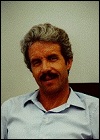 |
Speaker: Mario Gerla, University of California, Los Angeles, USA
Bio: Mario Gerla is a Professor in the Computer Science Dept at UCLA. He holds an Engineering degree from Politecnico di Milano, Italy and the Ph.D. degree from UCLA. He became IEEE Fellow in 2002. At UCLA, he was part of the team that developed the early ARPANET protocols under the guidance of Prof. Leonard Kleinrock. He joined the UCLA Faculty in 1976. At UCLA he has designed network protocols for ad hoc wireless networks (ODMRP and CODECast) and Internet transport (TCP Westwood). He has lead the ONR MINUTEMAN project, designing the next generation scalable airborne Internet for tactical and homeland defense scenarios. His team is developing a Vehicular Testbed for safe navigation, content distribution, urban sensing and intelligent transport. He serves on the IEEE TON Scientific Advisory Board. He was recently recognized with the annual MILCOM Technical Contribution Award (2011) and the IEEE Ad Hoc and Sensor Network Society Achievement Award (2011).
Slides. PDF
|
| |
|
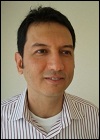 |
Speaker: Onur Altintas, Toyota InfoTechnology Center, Japan
Bio: Onur Altintas is a principal researcher at the R&D Group of Toyota InfoTechnology Center, Co. Ltd, in Tokyo. From 1999 to 2001 he was with Toyota Motor Corporation and from 2001 to 2004 he was with Toyota InfoTechnology Center USA, and was also a visiting researcher at Telcordia Technologies between 1999 and 2004. Before joining Toyota Motor Corporation in 1999, he was a research scientist at Ultra High Speed Network and Computer Technology Labs (UNCL), Tokyo. Dr. Altintas received his B.S. and M.S. degrees from Orta Dogu Teknik University, Ankara, Turkey, and his Ph.D. degree from the University of Tokyo, Japan; all in electrical engineering. He is the co-founder and general co-chair of the IEEE Vehicular Networking Conference (IEEE VNC) held in Tokyo in 2009; in New Jersey in 2010, and in Amsterdam in 2011. He also served as a guest editor for a special issue on Vehicular Communications for IEEE Wireless Communications Magazine (2009) and EURASIP Journal on Wireless Communications and Networking (2009) and as Track Chair of Vehicular Electronics and Telematics for the IEEE Vehicular Technology Conference (IEEE VTC Spring 2009, 2011 and 2012). He is an IEEE VTS Distinguished Lecturer.
Slides. PDF
|
| |
|
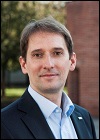 |
Speaker: Hannes Hartenstein, Karlsruhe Institute of Technology, Germany
Bio: Hannes Hartenstein is a professor for decentralized systems and network services at the Karlsruhe Institute of Technology (KIT), Germany, and executive director of the KIT Steinbuch Centre for Computing. Prior to joining KIT (University of Karlsruhe), he was a senior research staff member with NEC Europe. He was active in various projects on wireless vehicular communications, for example in Fleetnet, Network on Wheels, PRE-DRIVE-V2X, and is currently active within the EU FP7 DRIVE-C2X. Together with Kenneth Laberteaux he edited the book "VANET - Vehicular Applications and Inter-Networking Technologies" (Wiley, 2010). His research interests include mobile networks, virtual networks, and IT management.
Slides: PDF
|
| |
|
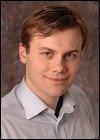 |
Speaker: Marco Gruteser, Rutgers University, USA
Bio: Marco Gruteser is an Associate Professor of Electrical and Computer Engineering at Rutgers University and a member of the Wireless Information Network Laboratory (WINLAB). He is a pioneer in the area of location privacy and also recognized for his work on connected vehicle applications. Beyond these topics, his 90+ peer-reviewed articles and patents span a wide range of wireless, mobile systems, and pervasive computing issues. He received his MS and PhD degrees from the University of Colorado in 2000 and 2004, respectively, and has held research and visiting positions at the IBM T. J. Watson Research Center and Carnegie Mellon University. His recognitions include an NSF CAREER award, a Rutgers Board of Trustees Research Fellowship for Scholarly Excellence, as well as best paper awards at ACM MobiCom 2012, ACM MobiCom 2011 and ACM MobiSys 2010. His work has been featured in numerous media outlets including the MIT Technology Review, NPR, the New York Times, and CNN TV.
Slides: PDF
|
| |
|
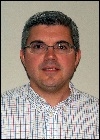 |
Speaker: Javier Gozalvez, UWICORE Laboratory, Miguel Hernandez University of Elche (UMH), Spain
Bio: Javier Gozalvez received an electronics engineering degree from the Engineering School ENSEIRB (Bordeaux, France), and a PhD in mobile communications from the University of Strathclyde, Glasgow, U.K. Since October 2002, he is with the University Miguel Hernandez of Elche, Spain, where he is currently an Associate Professor at the Department of Communications Engineering. At UWICORE, he is leading research activities in the areas of wireless vehicular communications, multi-hop cellular networks, radio resource management, heterogeneous wireless systems, and wireless system design and optimization. He currently serves as Mobile Radio Senior Editor of IEEE Vehicular Technology Magazine, and previously served as AE of IEEE Communication Letters. He is General Co-Chair for the Ninth ACM International Workshop on VehiculAr Inter-NETworking, Systems, and Applications (ACM VANET 2013). He has been elected to the Board of Governors of the IEEE Vehicular Technology Society (2011-2013), and to the IEEE Distinguished Lecturers program of the IEEE Vehicular Technology Society.
Slides. PDF
|
Back to Top
Wednesday, 12 June 2013
09:00 – 10:30
P8: Horizon 2020: Europe’s Major New Collaborative Research Programme
 |
Moderator: David Soldani, Huawei European Research Centre
Bio: David Soldani received a M.Sc. degree with maximum score and cum laude approbatur in electronic engineering from the University of Florence, Italy, in December 1994; and a D.Sc. degree in technology with distinction from Aalto University, Finland, in October 2006. In September 2007, he was qualified for Professorship on Communication Networks from the same university. He has been in the ICT industry for more than 18 years. From 1997 to 2007 he was at Nokia in various technical and research management positions. From 2007 to 2009 he was a research director and head of Customer Networks & Solutions and Solutions & Services Innovation functions, Research Technology & Platforms (RTP), Nokia Siemens Networks (NSN), Munich, Germany. In this role, he was responsible for driving the alignment between the RTP research portfolio, the NSN network architecture vision and technology strategy, and future customer needs, and driving innovative research projects for improving for improving services and fixed-mobile broadband solutions. Prior to joining Nokia, he was a research engineer in Rohde & Schwarz, in Sirti, in Milan, Italy, and a graduated officer at the Italian Military Navy, Livorno, Italy.
He is currently Vice President (VP) of the Huawei European Research Centre (ERC) and Head of Central Research Institute (CRI), Munich, Germany. In his current role, he is leading the research to innovation via standardization on Future Network and Terminal Technologies in Europe. Prior to that he was responsible for driving the alignment between Huawei All-IP E2E solutions and future customer needs, taking a holistic view of both service requirements and how these requirements affect the structure, technology, and network components of the optimal solution for each part of an operator’s network. His areas of technical expertise include Future Network Technologies, Wireless and Wireline Broadband Networks, Transport Network Layer Technologies, QoE and QoS, Policy Control and Charging, CEM, Network Planning, Troubleshooting and Optimization. He has been selected seven times to receive special awards in recognition of his role, commitment, professionalism, and outstanding contribution at Nokia, Nokia Siemens Networks and Huawei Technologies. He has published or presented numerous international papers, contributed to the publication of many books, and holds several international patents. He has been working as Guest Editor of IEEE Networks and Communications magazines, and he has taken part in a number of IEEE Technical Program Committees for international conferences, journals, magazines, and workshops, especially in areas of Mobile Broadband Networks and Future Networks.
|
On the potential ICT solutions driving research priorities in H2020 Work Programme Horizon 2020 will address three priorities in one programme: Excellent Science, Industrial Leadership and Societal Challenges. In this panel we will elaborate on the main areas of Application Driven Research, Technology Driven Research and Basic Research in the field of Information and Communication Technology (ICT). The key issues on the 2020 Horizon, such as Scenarios, New Architectures, Spectrum, Management of Complex System and Service Applications will be introduced and the positioning of ICT topics, such as Elastic Networking, Future Radio Access, Software Defined Networking, Service Aware Networks, Virtualization, etc. discussed.
Introductory Slides. PDF
Panelist Slides: PDF
| |
|
| |
|
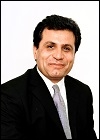 |
Speaker: Rahim Tafazolli, University of Surrey, UK
Bio: Prof. Rahim Tafazolli -is the Director of the Centre for Communications Systems Research (CCSR) and 5G Innovation Centre (5GIC), Faculty of Engineering and Physical Sciences, The University of Surrey in the UK. He has published more than 500 research papers in refereed journals, international conferences and as invited speaker. He is the editor of two books on “Technologies for Wireless Future” published by Wiley’s Vol.1 in 2004 and Vol.2 2006. He is currently chairman of EU Net!Works Technology Platform Expert Group, board member of the UK Future Internet Strategy Group (UK-FISG). He was appointed as Fellow of WWRF (Wireless World Research Forum) in April 2011, in recognition of his personal contribution to the wireless world. As well as heading one of Europe’s leading research groups.
Slides: PDF |
| |
|
 |
Speaker: Luis Rodríguez-Roselló, , Head of Unit "Network Technologies" DG CONNECT, European Commission, Belgium
Bio: Luis Rodríguez-Roselló holds a degree of Telecommunications Engineering (Universidad Politécnica de Madrid-UPM). After some years of professional activity as engineer at a private company and as full professor at the Faculty of Telecommunications Engineering at UPM in Computer Science and Control Systems, he was appointed Director of the R&D Department at the ITE (Institute for Technologies in Education) of the Ministry of Education & Science in Spain and later on Head of the International Department of the CDTI (Centro para el Desarrollo Tecnológico e Industrial).
He joined the European Commission in 1989 as Head of Division in Directorate-General "Information Society and Media" responsible for the R&D Programme DELTA (Developing European Learning through Technological Advance). He was acting Director in 2003 and 2004 of Directorate "Emerging Technologies, Infrastructures & Applications". Domains of responsibility encompassed basic research (Future and Emerging Technologies), Grid Technologies, Research Infrastructures and application areas related to eInclusion and eWork. End 2004 he was appointed Head of the Unit "Networked Media Systems" and in 2010 Head of the Unit "Future Networks. In 2009-2010 he was also acting Director of Directorate "Converged Networks & Services", which addressed R&D and innovation on Future Internet (network architectures, communication technologies…), Software & Services, Cloud Computing, Media Systems and Internet of Things among other topics. He also co-chaired during that period the Future Internet Public-Private Partnership initiative of the European Commission. He is currently leading the Unit "Network Technologies", responsible for European R&D and innovation on mobile communications, optical networks, satellite communications, smart networks and future Internet architectures, including Content/ Information Centric Networks and Internet of Things.
Slides. PDF
|
| |
|
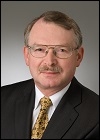 |
Speaker: Werner Mohr, NSN, Germany
Bio: Werner Mohr was graduated from the University of Hannover, Germany, with the Master Degree in electrical engineering in 1981 and with the Ph.D. degree in 1987.
Dr. Werner Mohr joined Siemens AG, Mobile Network Division in Munich, Germany in 1991. He was involved in several EU funded projects and ETSI standardization groups on UMTS and systems beyond 3G. Since December 1996 he was project manager of the European ACTS FRAMES Project until the project finished in August 1999. This project developed the basic concepts of the UMTS radio interface. Since April 2007 he was with Nokia Siemens Networks GmbH & Co. KG and since May 2012 with Nokia Siemens Networks Management International GmbH in Munich Germany, where he is Head of Research Alliances. He was the coordinator of the WINNER Project in Framework Program 6 of the European Commission, chairman of WWI (Wireless World Initiative) and of the Eureka Celtic project WINNER+. The WINNER projects laid the foundation for the radio interface for IMT-Advanced and provided the starting point for the 3GPP LTE standardization. In Framework Program 7 he is coordinator of the FINSENY project as part of the Future Internet Public Private Partnership (FI-PPP). In addition, he was vice chair of the eMobility European Technology Platform in the period 2008 – 2009 and he is now Net!Works (formerly called eMobility) chairperson for the periods 2010 – 2011 and 2012 – 2013. Werner Mohr was chair of the "Wireless World Research Forum – WWRF" from its launch in August 2001 up to December 2003. He is member of VDE (Association for Electrical, Electronic & Information Technologies, Germany) and Senior Member of IEEE. 1990 he received the Award of the ITG (Information Technology Society) in VDE. He is board member of ITG in VDE, Germany for the term 2006 to 2008 and was re-elected for the terms 2009 to 2011 and 2012 to 2014. Werner Mohr is co-author of a book on "Third Generation Mobile Communication Systems" a book on "Radio Technologies and Concepts for IMT-Advanced" and a book “Mobile and Wireless Communications for IMT-Advanced and Beyond”.
Slides: PDF
|
| |
|
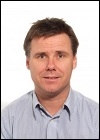
|
Speaker: Erik Dahlman, Ericsson Research
Bio: Erik Dahlman received the Master of Science degree and Doctor of Technology degree from the Royal Institute of Technology, Stockholm in 1987 and 1992 respectively. He is currently the Senior Expert in Radio Access Technologies within Ericsson Research. Erik Dahlman was deeply involved in the development and standardization of 3G radio access technologies (WCDMA and HSPA), first in Japan and later within the global 3GPP standardization body. More recently he has been involved in the standardization/development of the 3GPP Long Term Evolution (LTE) and its continued evolution. He is currently part of the Ericsson Research management team working with long-term strategies in the area of radio-access technologies. Erik Dahlman is the co-author of the book 3G Evolution – HSPA and LTE for Mobile Broadband and its follow-up 4G – LTE and LTE-Advanced for mobile broadband. He has also participated in three other books within the area of radio communication, as well as numerous journal papers and conference contributions. In 1998 he received the IEEE Jack Neubauer Best System Paper award for the paper WCDMA – The Radio Interface for Future Mobile Multimedia. Erik Dahlman holds more than 80 patents in the area of mobile-radio communication and has been named the Inventor of The Year within Ericsson. In October 2009, Erik Dahlman received the Major Technical Award, an award handed out by the Swedish Government, for his contributions to the technical and commercial success of the HSPA radio-access technology.
Slides. PDF |
Back to Top
Wednesday, 12 June 2013
11:00 – 12:30
P9: Collaborative Programs in Green Communications: Successful Cases and Key Remaining Research Challenges
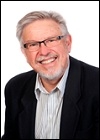 |
Moderator: Rod Tucker, University of Melbourne, Australia
Bio: Rod Tucker is a Laureate Professor at the University of Melbourne and Director of the University of Melbourne’s Centre for Energy-Efficient Telecommunications (CEET). He is also Director of the Institute for a Broadband-Enabled Society. Rod leads a group of academics and students undertaking research on broadband access technologies and energy-efficient in telecommunications.
|
As research activities in the area of energy-efficient communications have expanded around the world, a number of groups in universities and industry have joined together in collaborative research programs. Examples include the GreenTouch Consortium, a global pre-competitive research consortium dedicated to improving network energy efficiency; TREND, a Network of Excellence on energy-efficient networking; ECONET, an EU-funded green communications program, and MVCE, a collaboration of networking researchers across a variety of institutions. The purpose of this Panel Session will be to provide a snapshot of research activities in these four collaborative programs and to provide an overview of the global status of green telecommunications research. The panel will review some of the successful cases that have been achieved to date and highlight some key remaining research challenges.
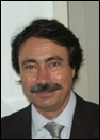 |
Speaker: Franco Davoli (ECONET), University of Genoa, Italy
Bio: Franco Davoli is Full Professor of Telecommunication Networks at the University of Genoa, Italy, where he is with Department of Electrical, Electronic and Telecommunications Engineering, and Naval Architecture (DITEN); his current research interests are in dynamic resource allocation and control in multiservice networks, wireless mobile and satellite networks, multimedia communications and services, and energy-efficient networking.
|
| |
|
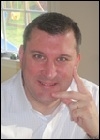 |
Speaker: Thierry Klein (GreenTouch), Bell Labs, Alcatel-Lucent, USA
Bio: Thierry Klein is currently the Head of Green Research at Bell Labs, Alcatel-Lucent leading a large team of researchers, engineers and scientists across multiple departments, research domains conducting research towards the design, development and use of sustainable future communications and data networks. He also serves as the Chairman of the Technical Committee of GreenTouch, a global consortium dedicated to improve energy efficiency in networks by a factor 1000x compared to 2010 levels. Thierry founded a start-up company focused on wireless communications for emergency response situations within Alcatel-Lucent Ventures. In 2010, he was voted "Technologist of the Year" at the Total Telecom World Vendor Awards.
|
| |
|
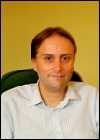 |
Speaker: John Thompson (MVCE), University of Edinburgh, UK
Bio: John Thompson holds a personal chair in Signal Processing and Communications at the School of Engineering in the University of Edinburgh. His research interests include signal processing, energy efficient communications systems, and multihop wireless communications. He was deputy academic coordinator for the recent Mobile Virtual Centre of Excellence Green Radio project, which involved collaboration between five UK universities and a dozen international companies. He is member-at-large for the Board of Governors of the IEEE Communications Society. He was technical programme co-chair for the IEEE Globecom Conference in Miami in 2010 and is serving in the same role for the IEEE Vehicular Technology Conference Spring in Dresden in 2013.
|
| |
|
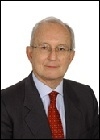 |
Speaker: Marco Ajmone Marsan (TREND), Politecnico di Torino, Italy
Bio: Marco Ajmone Marsan is Full Professor at the Politecnico di Torino, and a part time Chief Researcher at the Institute IMDEA Networks in Spain. He founded the Telecommunication Networks Group at the Politecnico di Torino. Marco Ajmone Marsan is the general chair of INFOCOM 2013.
He has received a "Honoris Causa" Doctoral Degree in Telecommunication Networks from the Budapest University of Technology and Economics in March 2002. Marco Ajmone Marsan has been the Vice-Rector for Research, Innovation and Technology Transfer at the Politecnico di Torino from 2005 to 2009. From September 2002 to March 2009 he was the Director of the Institute for Electronics, Information and Telecommunications Engineering of the National Research Council. His main present research interest is in energy-efficient networking, and in the applications of ICT for energy efficiency.
|
Back to Top
Wednesday, 12 June 2013
14:00 – 15:30
P10: Wireless 100Gb/s and Beyond: A Special Focus Program of the German Scientific Foundation
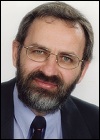 |
Moderator: Rolf Kraemer, Technical University Cottbus / IHP, Germany
Bio: Prof. Dr.-Ing. Rolf Kraemer received his diploma and Ph.D. from RWTH Aachen in electrical engineering and computer-science in 1979 and 1985. He joined the Philips Research Laboratories in 1985 where he worked on distributed systems, communication systems, wireless high speed communication, and embedded control- and management-software in different positions and responsibilities until 1998 in Hamburg and Aachen. In 1998 he became a Professor at the Technical University of Cottbus with the joined appointment of the department head of wireless systems at the IHP in Frankfurt (Oder). His teaching obligations address the area of distributed operating systems, mobile communication, and sensor networks. In the IHP he leads a research department with approximately 50 researchers in topics of high speed wireless communication systems, sensor networks and middleware systems, as well as dependable systems. In 2012 he was granted the DFG special focus project “Wireless 100Gb/s and beyond” and he ihas been nominated as speaker of this program. Prof. Kraemer is founder of 2 start-up companies and works as business angel since 2009.
|
The panel will discuss the technical challenges of wireless communication systems at ultra-high speed of 100Gb/s and more. This is the topic of a newly started focus project of the German Science Foundation (DFG). The panel will present and discuss different approaches to solve the problem and to integrate such a communication system into ordinary computers. The panelists represent different project proposals submitted to DFG and started in Spring 2013.
Slides: PDF
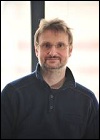 |
Speaker: Jörg Nolte, Technical University of Cottbus, Germany
Bio: Jörg Nolte is tenured professor for computer science at the Brandenburg University of Technology in Cottbus (Germany) where he holds the chair for distributed systems and operating systems. Prior to that position he was a senior researcher at the Fraunhofer Gesellschaft, Institute for Computer Architecture and Software Technology (FIRST), Berlin. He received his M.S. (Dipl. Inform.) in computer science in 1988 and his Ph.D. (Dr.-Ing.) in 1994, both from the Technical University of Berlin. He was a principal member and finally the vice-head of the PEACE group that developed the operating system for Germany's first massively parallel supercomputer. In the 90s he was a post doc fellow and senior researcher in the Tsukuba Research Center (TRC) of the Real World Computing Partnership (RWCP) in Tsukuba Science City, Japan. During that time his research concentrated on scalable, low-latency middleware platforms for clusters (TACO). His group currently participates in the Intel MARC program (Many-core Applications Research Community) and his major research interests are operating systems, middleware and programming languages for parallel, distributed and embedded systems.
Slides: PDF
|
| |
|
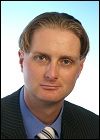 |
Speaker: Frank Ellinger, Technical University of Dresden, Germany
Bio: Frank Ellinger was born in Friedrichshafen, Germany, in 1972. In electrical engineering, he graduated from the University of Ulm, Germany. He received an MBA, PhD degree and habilitation degree from ETH Zürich (ETHZ), Switzerland. Since August 2006 he is full professor and head of the Chair for Circuit Design and Network Theory at the Dresden University of Technology, Germany. From 2001-2006, he has been a project leader of the IBM/ETHZ Center for Advanced Electronics hosted at IBM in Rüschlikon. He authored more than 250 scientific publications. For his works he received several awards including the IEEE MTT-S Outstanding Young Engineer Award and the ETHZ Medal. He has been an IEEE MTT-S Distinguished Microwave Lecturer.
Slides: PDF
|
| |
|
 |
Speaker: Eckhard Grass, Humboldt University, Germany
Bio: Prof. Eckhard Grass received the Dr.-Ing. degree in Electronics from Humboldt-University Berlin, Germany, in 1993. He was a Visiting Research Fellow at Loughborough University, U.K., from 1993 to 1995, and a Senior Lecturer in Microelectronics at the University of Westminster, London, U.K., from 1995 to 1999. Since 1999, he has been with IHP (www.ihp-microelectronics.com), leading several projects on the implementation of wireless broadband communication systems. Since 2007, E. Grass is team leader of the Wireless Broadband Communications Group at IHP. Besides his position at IHP, he is Professor at the Department of Informatics at Humboldt-University Berlin since fall 2011.
E. Grass has published about 80 papers at international conferences and in international journals. His research topics include wireless broadband communication systems, asynchronous circuit design and digital signal processing architectures.
Slides: PDF
|
| |
|
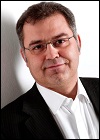 |
Speaker: Christoph Scheytt, University Paderborn / Heinz Nixdorf Institute, Germany
Bio: J. Christoph Scheytt received his diploma degree (M.Sc., 1996) and PhD degree (2000, with highest honors) both from Ruhr-University Bochum, Germany. In 2000 he co-founded advICo microelectronics GmbH, a German IC design house for RFIC and fiber-optic IC design. For 6 years he served as CEO at advICo. From 2006 to 2012 he was with IHP as head of IHP’s circuit design department. In 2012 Dr. Scheytt was appointed as full professor for Circuit Design by University of Paderborn, Germany and research group leader at the Heinz-Nixdorf Institute in Paderborn. Dr. Scheytt has authored and co-authored more than 100 refereed papers and holds 12 patents. His research interests focuses on high-frequency and broadband IC design for communications and sensing, PLL techniques, and design with SiGe BiCMOS and CMOS technologies.
Only for IEEE publications: (Student Member '96, Member '01)
Slides: PDF
|
| |
|
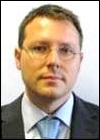 |
Speaker: Damian Dudek, German Scientific Foundation, Germany
Bio: Dr.-Ing. Damian Dudek received the doctoral degree in electrical engineering from the University of Wuppertal, Germany in 2009 in the frame work with the University of Bochum, Germany supervised by Prof. Engemann and Prof. Awakowicz in the DFG-Research Training Group (GRK 1051)“Non-Equilibrium Phenomena in Low-Temperature Plasmas”. He worked as a Postdoctoral scientist for two years in the Nanophotonics group of Prof. Sotomayor-Torres at the Catalan Institute of Nanotechnology (ICN) in Barcelona, Spain. He performed his research work for his diploma thesis under the DAAD grant in the group of Prof. Rodríguez González-Elipe at the institute of materials science (ICMS) in Sevilla, Spain.
Since 2010, he is the program officer for electrical engineering at the German Research Foundation, Deutsche Forschungsgemeinschaft (DFG).
Slides: PDF
|
Back to Top |
|
PROGRAM AT A GLANCE >>
KEYNOTE SPEAKERS >>
INVITED SPEAKERS >>
TECHNICAL SYMPOSIA >>
INDUSTRY & BUSINESS PANELS >>
TUTORIALS >>
WORKSHOPS >>
SOCIAL EVENTS >>
|



















































